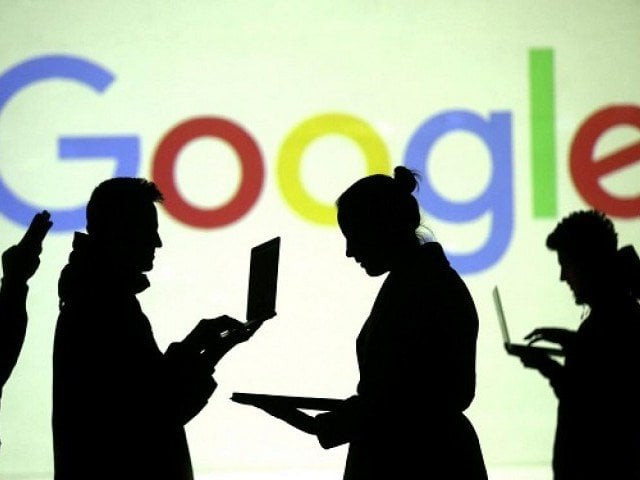Google unveils vetting process for drug rehab ads
Treatment centers will now be able to run ads after being vetted by LegitScript

Silhouettes of laptop and mobile device users are seen next to a screen projection of Google logo in this picture illustration taken March 28, 2018.
PHOTO: REUTERS
Treatment centers now will be able to run ads after being vetted by Portland, LegitScript, Google said.
Interest in treatment for abuse of opioids and other prescription drugs has soared in recent years amid what authorities have described as a nationwide epidemic.
Scammers found that Google ads were an easy way to defraud treatment-seekers in an industry in which regulations vary greatly by jurisdiction, authorities and patient advocacy organizations have said.
Google boosts efforts to help news organisations get more paid subscribers
Google suspended alcohol and drug treatment advertising on search pages and millions of third-party apps and websites in the US in September, the week after tech publication The Verge posted a lengthy story about scams. Google expanded the prohibition globally in January.
The move cut off at least $78 million annually worth of advertising in the US alone, research firm Kantar Media estimated.
Most advertisers can buy ads through Google with few hurdles to clear. But Google has adopted additional vetting for locksmiths, garage-door repairers, drug makers and online pharmacies following public pressure. Google has said it also will begin seeking more documentation from political advertisers this year.
The addiction treatment rules apply to in-person facilities, crisis hotlines, and support groups.
LegitScript will evaluate treatment providers beginning Monday on 15 criteria, including criminal background checks and license and insurance verification. They must also provide “written policies and procedures demonstrating a commitment to best practices, effective recovery, and continuous improvement,” according to LegitScript, which will charge $995 upfront and then $1,995 annually for vetting.
The National Association of Addiction Treatment Providers and the National Center on Addiction and Substance Abuse support the standards, John Horton, chief executive of LegitScript, said in an interview last week.
A vetting process for sober-living houses and non-US treatment centers has yet to be set, he said.
Horton acknowledged the “extra step” may frustrate rehab centers.
Google employees to fight cyber bullying at work
“It’s unfortunate, but this is one way the market gets cleaner and people get the help they deserve,” he said.
Marcia Lee Taylor, chief policy officer of the Partnership for Drug-Free Kids, to whom Google has donated advertising space, said earlier efforts to certify treatment services have failed because there was no “business incentive to answer all these invasive questions.”
Tying access to the world’s biggest online advertising system to certification makes applying worthwhile, Taylor said.
The new rules do not affect free business listings on Google Maps, which also have been susceptible to fraud. Google said it is continuously developing ways to combat Maps spammers.



















COMMENTS
Comments are moderated and generally will be posted if they are on-topic and not abusive.
For more information, please see our Comments FAQ